TEAMING UP ON INCLUSION
Championing a collaborative approach to disability-inclusive sport is one of the core focus areas of Team Up. It applies both to our programs that are specifically designed to make a broad community impact on disability inclusion, and to those that run activities adapted for people with a disability.
Why is disability inclusion such an important focus of Team Up? Across the Asia-Pacific, people with a disability often face marginalisation and exclusion. Negative attitudes in the community are compounded by a lack of awareness and discrimination, while women and girls with disabilities face multiple layers of discrimination. This means that people with a disability have lower levels of access to all areas of life, including the benefits related to sport participation.
However, when access to sport participation is enabled for all, the benefits for both individuals and communities can be hugely positive, as Team Up Disability Inclusion Adviser Dr Paul Oliver explains.
“Sport is a powerful glue that binds our societies and breaks down barriers and, as Nelson Mandela said, ‘laughs in the face of all types of discrimination’. We know that participation in sport provides positive social and physical benefits to people with a disability and plays an important role in challenging community biases and stereotypes. Engaging people with a disability in sport is an excellent way of reducing costly preventable health disadvantage and promoting social capital and cohesion in our communities.”
For this reason, disability inclusion is central to the purpose of Team Up and builds on the understanding that the effectiveness of sport for inclusive development relies on collaborations between disability organisations, sports organisations and government and non-government development actors. Australia’s partnerships in the Pacific seek to build stronger communities and provide people with the skills and opportunities to succeed regardless of ability, and Team Up reinforces this work through our sport for development programs.
Team Up takes a twin-track approach, meaning that our programs implement disability-inclusive development both through mainstream programming, and through targeted efforts to facilitate the inclusion of people with a disability.
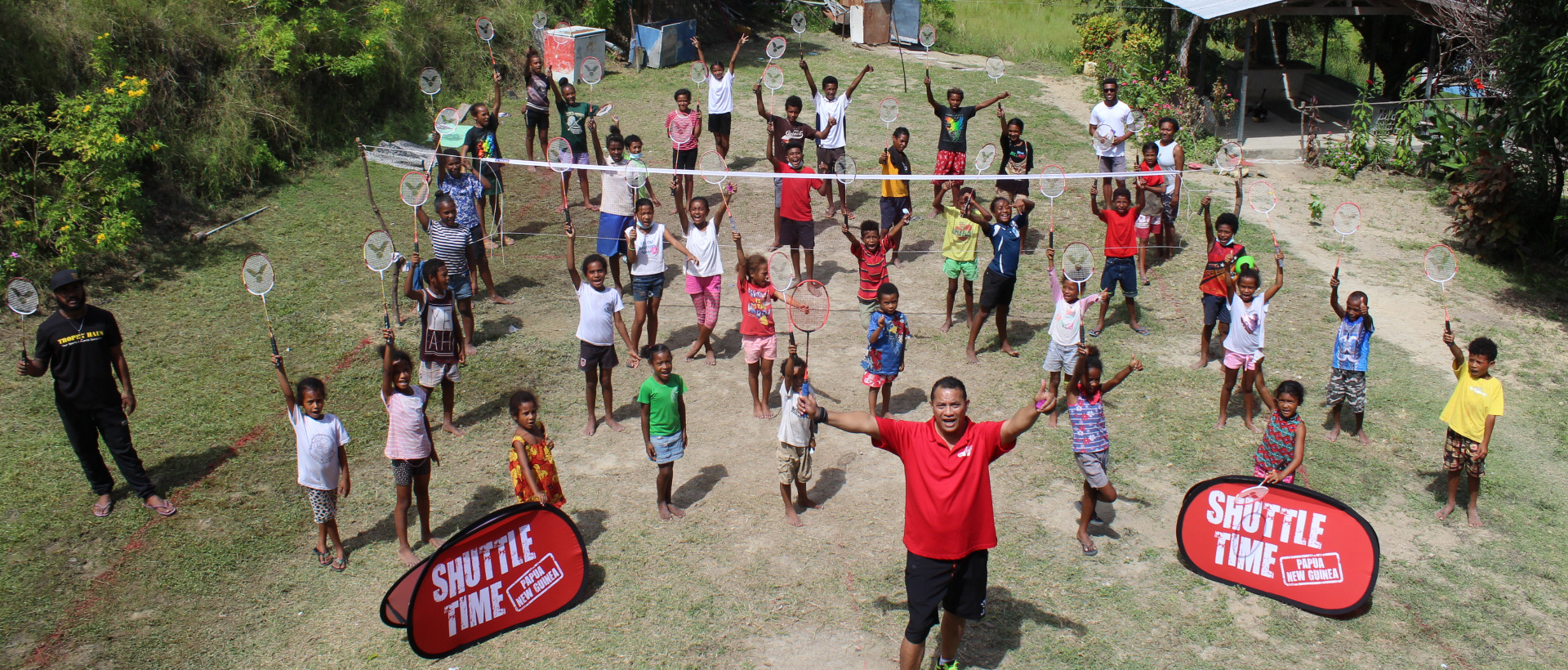
Team Up collaborates with sporting and disability organisations to identify barriers to participation in all levels of sport, and works together to build the capacity of coaches, officials and administrators to create opportunities for people with a disability, which will ultimately strengthen sporting institutions to become more inclusive. All our work in this area is undertaken with the mantra ‘nothing about us, without us’, meaning that those involved in outcomes will be part of the process of achieving them.
The Inclusive GymBad program in Papua New Guinea (PNG) seeks to remove or reduce the barriers experienced by people with a disability, particularly women and girls, to participate equally. Delivered in partnership by four sporting organisations (Badminton Oceania, Oceania Gymnastics Union, PNG Gymnastics Federation and Badminton PNG Federation) and a disability-focused development organisation (Motivation Australia), Inclusive GymBad combines gymnastics and badminton activities for participants of all abilities.
Beyond participation, the program seeks to employ trained and identified people with disability as key leaders. One of the first is Nellie Ruth Leva, who started as a participant in Inclusive GymBad in 2020 and now works as a coach on the program.
“My role is to talk to kids and help them understand what they need to learn during the program,” Nellie explains. “I create interesting warm-up sessions so that the participants are relaxed when we go into the main session. Most importantly I teach them to respect one another during the session.”
Nellie says that the program offers something “totally different and new” in her community. “For myself as a role model, I’m inspiring and motivating girls from my community and people with a disability to easily come out of their shells to attend the GymBad program. I feel so proud and happy when I see the kids knowing the different activities and rules – this program has brought so much fun to our participants.”
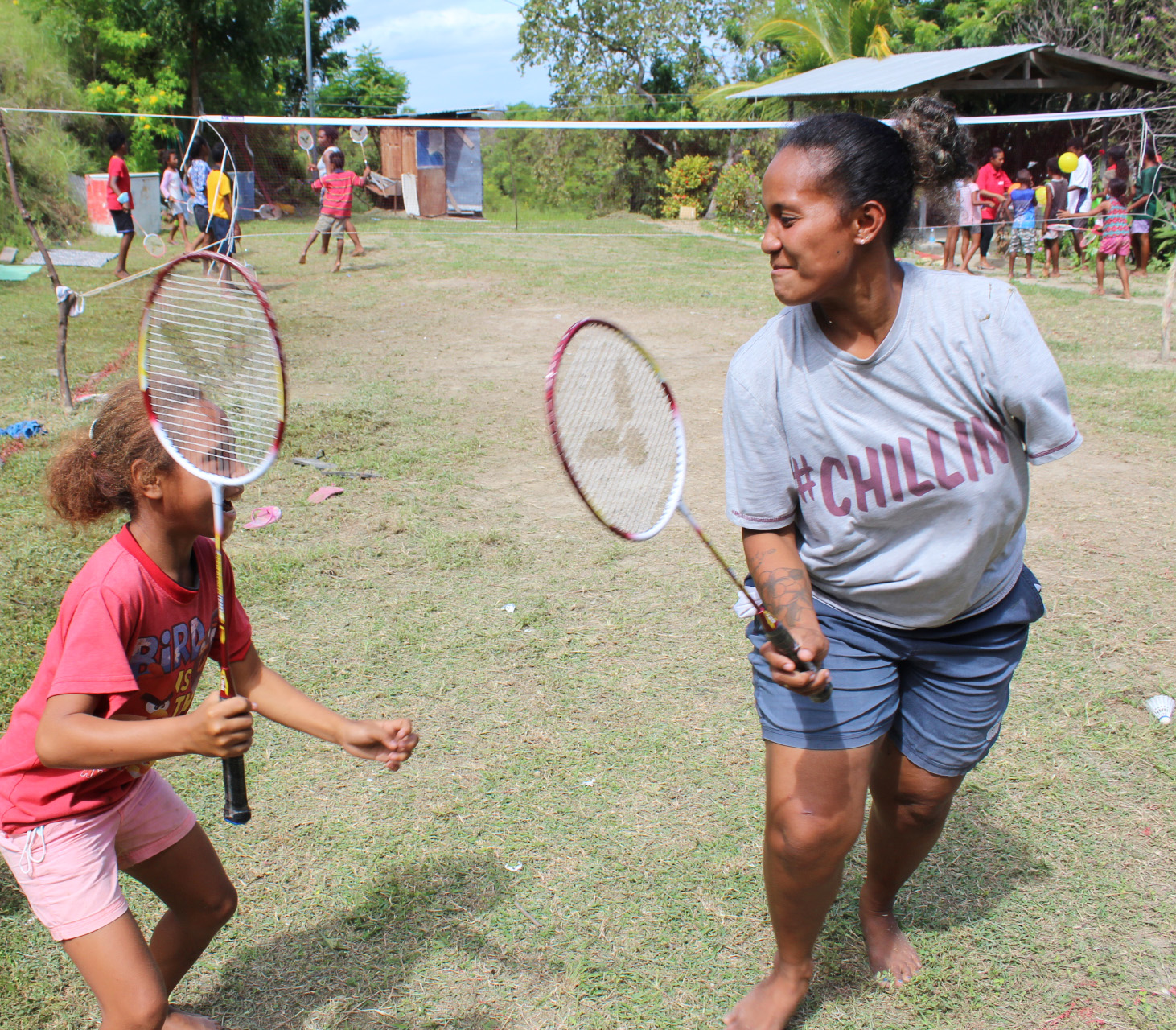
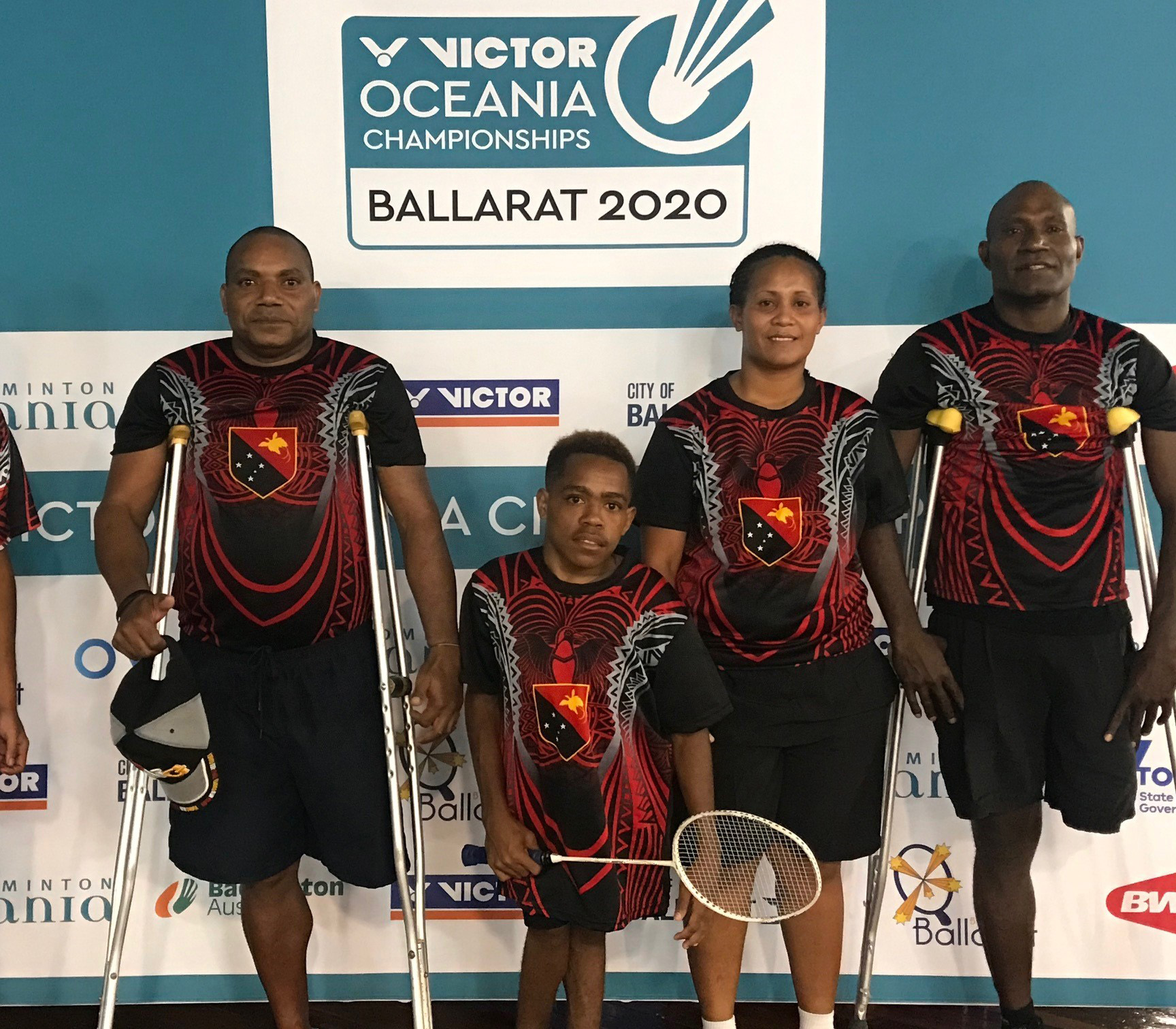

Another long-running program under Team Up (and previously funded by the Australian Government through Pacific Sports Partnerships) is the table tennis-based Smash Down Barriers program. Supported by Team Up in Fiji and Tonga, the program is delivered in partnership by International Table Tennis Federation – Oceania (ITTF – Oceania) and national table tennis federations.
Smash Down Barriers in Tonga has won a World Health Organization award and been the subject of a multi-award-winning internationally released short film. As well as running table tennis activities for people with a range of disabilities, it aims to promote inclusion across the community through public education and showcasing the skills of individuals with disabilities.
A flow-on benefit of the program has been its creation of a cohort of para-athletes of high profile, who are now deeply involved in community activities, as Tonga Table Tennis Federation (TTTF) CEO Netina Latu explains.
“Smash Down Barriers has provided opportunities for people living with a range of different disabilities to participate in table tennis, improve their skills and build self-confidence,” she says.
“Para-athletes who have come through the program have represented Tonga regionally and internationally. One of our para-athletes is now a part-time staff member of TTTF and has become a vital part of the transitioning voice in the community on social inclusion of persons with disability through sport by becoming a local coach, running programs in schools, and facilitating local volunteer training programs in communities.”
Latu says the benefits of this are two-way – for the athletes themselves, and also in shaping community perceptions about disability.
“The consistent participation of para-athletes in local community and national table tennis events demonstrates the confidence and the enriched self-assurance of our para-athletes through the Smash Down Barriers program. At the same time, the engagement of para-athletes in the various programs and trainings stimulate public interest and appreciation of the impact of sport in the lives of persons living with disabilities.
“Without the support of the Australian Government for the Smash Down Barriers program, progress towards changing perceptions both by and towards people with a disability in Tonga would have not progressed as much as it has.”
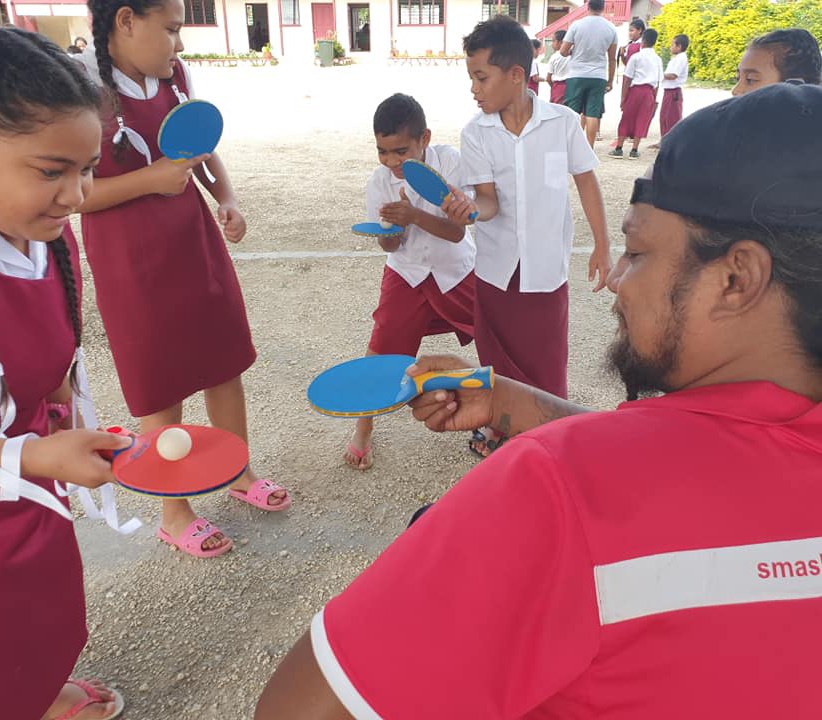
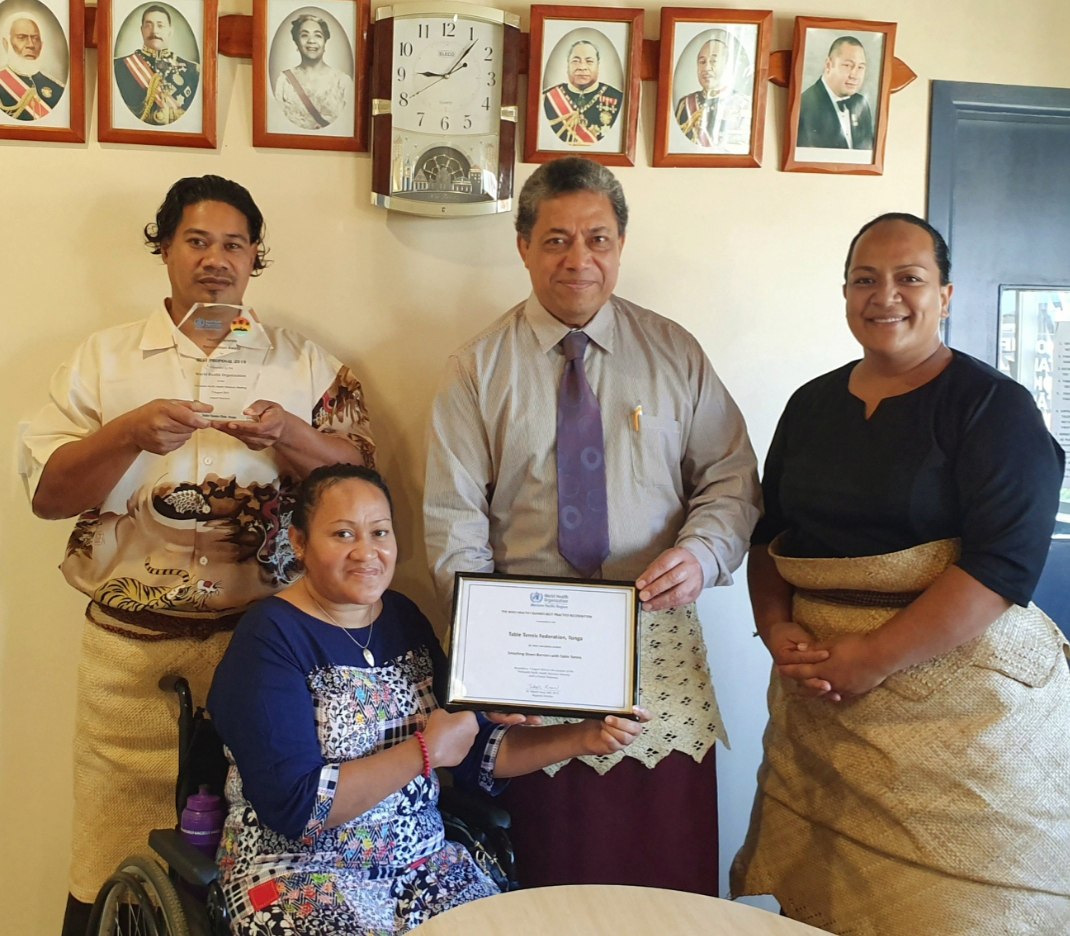

DIVERSE APPROACHES
Team Up’s focus on disability has encouraged several disability-focused organisations to formally partner with sports organisations to deliver programs for the first time. PNG Deaf Association is a partner in the PNG Rugby Union Inclusion Impact Program and Vanuatu Paralympic Committee is a partner in the Volley4Change program.
Team Up also has a partnership with Oceania Paralympic Committee based on a common focus of disability inclusion in the Pacific, through collaboration on activities that promote greater inclusion of people with a disability in all facets of sport.
Team Up programs aim to address disability inclusion through multiple approaches. Examples include:
Developing leadership skills for people with a disability:
Inclusive GymBad in PNG
Programs designed for those who are hard of hearing or deaf:
PNG Rugby Union Inclusion Impact Program
Programs that promote disability inclusion in both their activities and broader society:
Smash Down Barriers in Fiji and Tonga
Volley4Change in Vanuatu
Programs that run sessions adapted for people with a disability:
Healthy Nanas and Disability Cricket in Samoa
Hook In4 Health in Fiji and PNG
Just Play Plus in Fiji, PNG, Samoa, Tonga, Vanuatu
League for Life in Fiji, Samoa and Tonga
Swim, Splash & Survive in Vanuatu
Using sport to promote athlete role models for people with a disability:
Kicks 4 Kokoda in PNG
WORDS MATTER
Supporting our partners and the broader sport for development sector to use inclusive terminology that has been endorsed by those it describes is also important. Team Up recently published a Diversity and Inclusion Terminology and Language Resource that offers guidance on the recommended wording and terminology to use when describing people with various types of disability.
- TEAM UP FOCUS AREAS Read about our other focus areas
- TEAM UP PROGRAM LOGIC Learn how Team Up programs are designed







